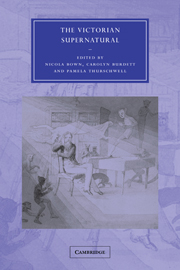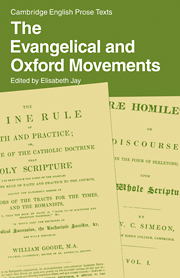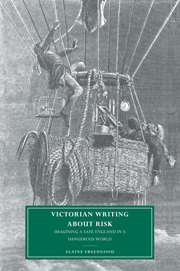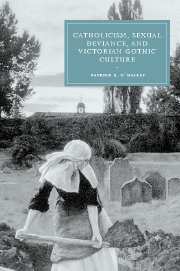
Critics of Capitalism
Victorian Reactions to 'Political Economy'
Part of Cambridge English Prose Texts
- Editors:
- Elisabeth Jay
- Richard Jay
- Date Published: December 1986
- availability: Available
- format: Paperback
- isbn: 9780521319621
Paperback
Other available formats:
eBook
Looking for an inspection copy?
This title is not currently available on inspection
-
By the start of the Victorian period the school of British economists acknowledging Adam Smith as its master was in the ascendancy. 'Political Economy', a catch-all title which ignored the diversity of viewpoints to be found amongst the discipline's leading proponents, became associated in the popular mind with moral and political forces held to be uniquely conducive to the progress of an increasingly industrialised and competitive society. 'Political Economy' served in turn as the focus for critics of equally diverse moral and political persuasions, who sought to challenge the materialism of contemporary society and offer their own assessments of the profound social changes of the time. In the introductory essay to the collection of readings from such 'critics of capitalism', the editors review the principles of the early economists, the way in which these principles were appropriated and applied by their Victorian successors and the contrasting modes which critics of popular economic ideas assumed. Subsequent extracts from the writings of the Owenite Socialist John Bray, Carlyle, Marx and Engels, J. S. Mill, Ruskin, Arnold, T. H. Green, William Morris and G. B. Shaw, demonstrate both the breadth of the possible grounds for ideological opposition to the prevailing philosophy and the shifting nature of the debate as 'Political Economy' itself was revealed as incapable of explaining or responding to the changing conditions of the 1870s. Headnotes to the extracts describe the genesis of individual debate and discuss distinctive stylistic features. Annotation in the form of footnotes and endnotes has been designed to gloss obscure allusions and arguments. In making more accessible the socio-economic writings of those authors now better known for their imaginative work, this volume will enable readers to reach a more profound appreciation of the central role such work played in developing the moral vision embodied in their more lastingly popular books and essays.
Customer reviews
Not yet reviewed
Be the first to review
Review was not posted due to profanity
×Product details
- Date Published: December 1986
- format: Paperback
- isbn: 9780521319621
- length: 280 pages
- dimensions: 216 x 138 x 19 mm
- weight: 0.405kg
- availability: Available
Table of Contents
Editorial note
Introductory essay
1. John Francis Bray (1809–1897): Labour's wrongs and labour's remedy
or the age of might and the age of right
2. Thomas Carlyle (1795–1881): Past and present
3. Friedrich Engels (1820–1895) and Karl Marx (1818–1883): F. Engles 'The condition of England: review of past and present by Thomas Carlyle'
4. Friedrich Engels (1820–1895) and Karl Marx (1818–1883): K. Marx 'The fetishism of commodities and the secret thereof'
5. Friedrich Engels (1820–1895) and Karl Marx (1818–1883): F. Engles 'Karl Marx'
6. John Stuart Mill (1806–1873): Principles of political economy with some of their applications to social philosophy
7. John Ruskin (1819–1900): Ad Valorem, Unto this last, essay IV
8. Matthew Arnold (1822–1888): 'Letter v', friendship's garland
9. Matthew Arnold (1822–1888): Culture and anarchy: an essay in political and social criticism
10. Thomas Hill Green (1836–1882): Liberal legislation and freedom of contract
11. William Morris (1834–1896): How I became a socialist
12. William Morris (1834–1896): Dawn of a new epoch
13. George Bernard Shaw (1856–1950): 'The transition to social democracy'
Notes
Select booklist.
Sorry, this resource is locked
Please register or sign in to request access. If you are having problems accessing these resources please email [email protected]
Register Sign in» Proceed
You are now leaving the Cambridge University Press website. Your eBook purchase and download will be completed by our partner www.ebooks.com. Please see the permission section of the www.ebooks.com catalogue page for details of the print & copy limits on our eBooks.
Continue ×Are you sure you want to delete your account?
This cannot be undone.
Thank you for your feedback which will help us improve our service.
If you requested a response, we will make sure to get back to you shortly.
×







